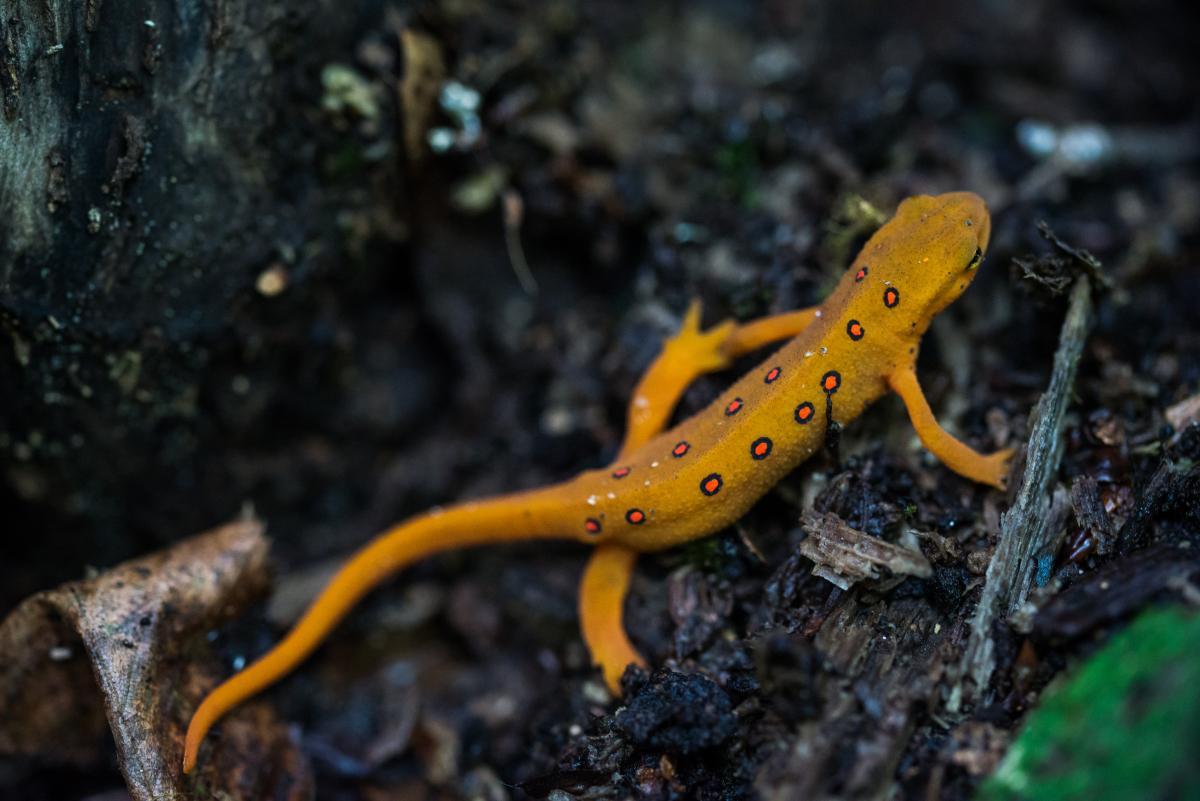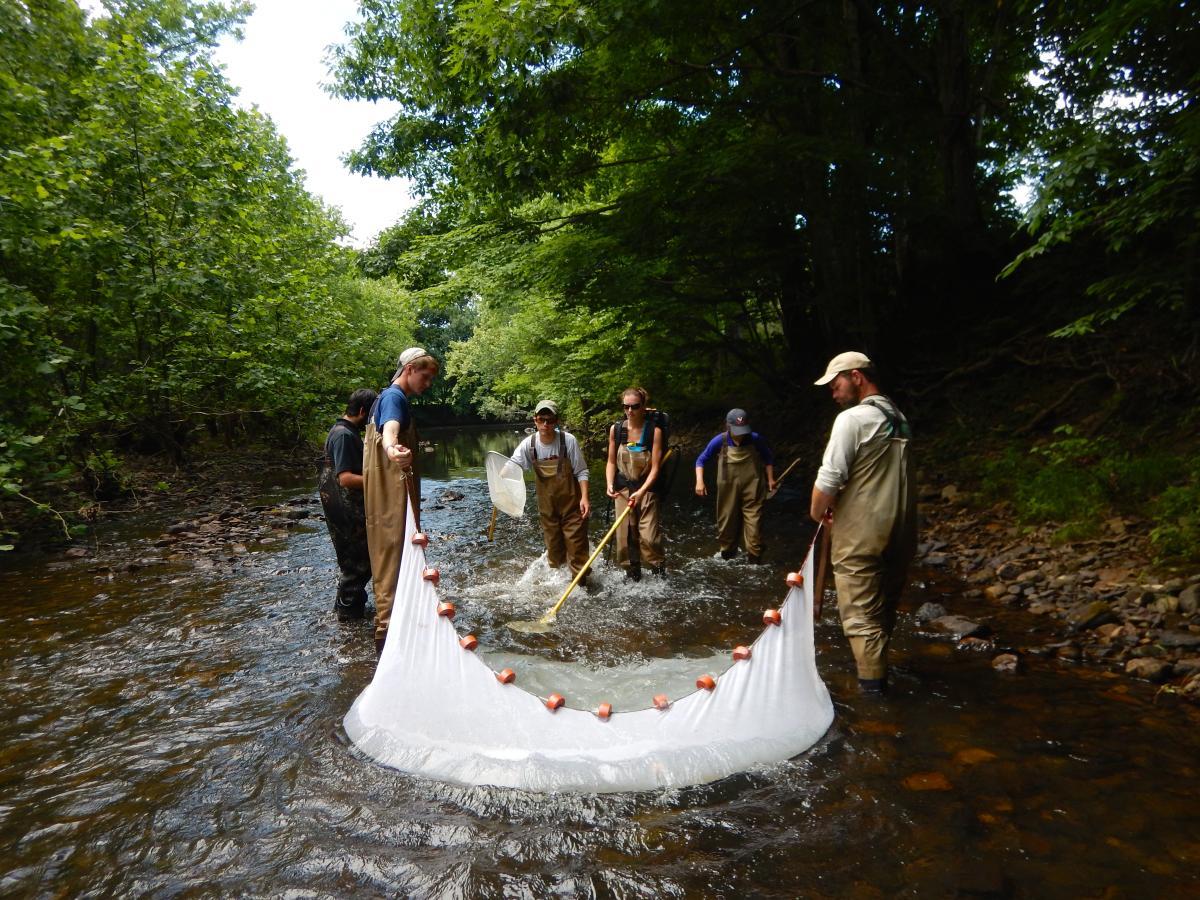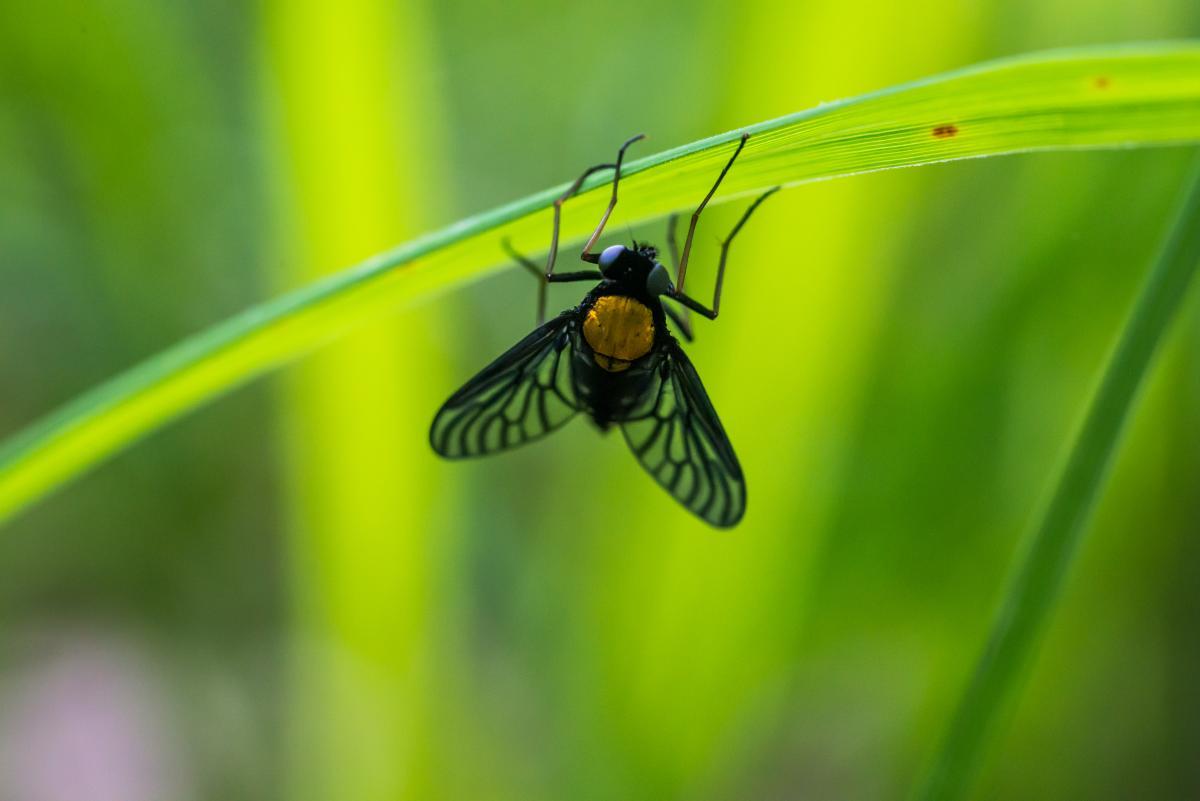Courses are small, field-intensive experiences led by nationally-recruited instructors. Each course is three weeks long, and fits within one of UVA's summer session terms. UVA Biology Majors Note: Courses satisfy the Biology laboratory requirement and count as a biology elective.
*If you are interested in all three courses, you may want to look into our new Field Research Practicum offering!
2026 Offerings

Session I: May 25 - June 12, 2026
FIELD HERPETOLOGY
3 credits
BIOL 4754 / 7754
Christian Cox, Florida International University
We will focus on the ecology and evolution of reptiles and amphibians, leveraging their diversity in the southeastern United States. In the field and laboratory, we will study 1) evolutionary relationships among reptiles and amphibians, 2) key evolutionary innovations that characterize each major lineage, 3) reptile and amphibian systems in ecological and evolutionary research, and 4) location and identification of reptiles and amphibians.
This course includes handling vertebrate animals (mammals, birds, reptiles, amphibians, fish). When you complete the liability waiver, please make sure you answer "yes" to the animal handling question.

Session II: June 22 - July 10, 2026
FIELD BIOLOGY OF FISHES
3 Credits
BIOL 4755/7755
David Neely
This class is an immersive introduction to fish biology, with a particular focus on the freshwater fish fauna of eastern North America. Students will develop proficiency in icthyology through extensive field sampling and in-situ observation. Themes will include fish identification; patterns and drivers of diversity; interactions at individual, population, community, and ecosystem levels; evolution; and influences of human activities.
This course includes handling vertebrate animals (mammals, birds, reptiles, amphibians, fish). When you complete the liability waiver, please make sure you answer "yes" to the animal handling question.

Session III: July 13 - 31, 2026
FIELD BEHAVIORAL ECOLOGY
3 credits
BIOL 4762 / 7762
Scott Villa, Davidson College
This course will illustrate principles of behavior and provide experience with methods used in animal behavior research. Students will develop an understanding of the scientific process as applied to behavior research, learn how behavior evolves and why we see the behavioral patterns that we do, and learn how to conduct research in wild populations. The class will work collaboratively to develop and carry out a field research project.
